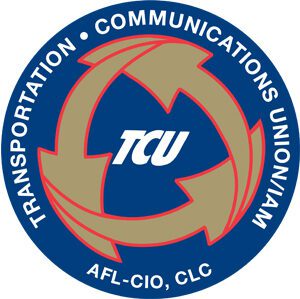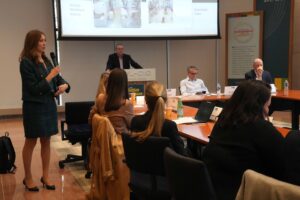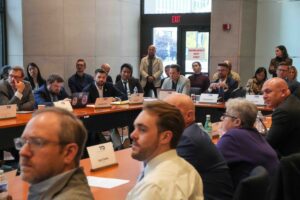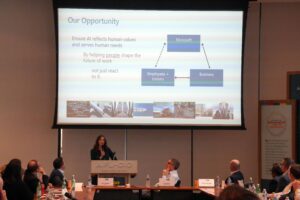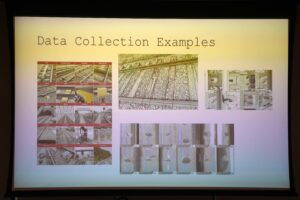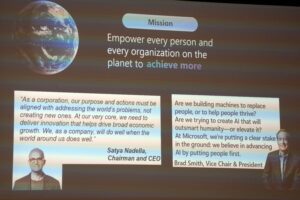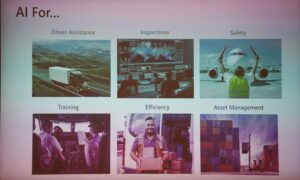
November 5, 2025 – Leaders from the Transportation Communications Union (TCU) and the International Association of Machinists and Aerospace Workers (IAM) recently participated in an Artificial Intelligence (AI) Roundtable hosted by Microsoft, the AFL-CIO Tech Institute, and the Transportation Trades Department, AFL-CIO (TTD). The event brought together transportation unions to discuss how AI is reshaping the transportation industry—and how workers must be central in shaping its future development.
“AI is already being tested across the rail industry, from inspection systems to dispatching tools,” said Dave Arouca, TCU National Legislative Director. “What’s critical now is full transparency from the outset—workers must be fully informed prior to AI being introduced into their workplace. These systems can’t be hidden in the background or behind proprietary walls. They must be disclosed so unions can bargain and negotiate over their use, scope, and deployment. Having a seat at the table is how we make sure AI supports safety and fairness, instead of breeding secrecy and skepticism.”
For TCU and IAM members, this discussion is an important step in ensuring that technology works for people, not the other way around. As AI tools begin to appear in rail operations, maintenance, and communications—such as inspection portals, predictive maintenance systems, and scheduling software—our unions are focused on making sure:
- Safety and human oversight remain non-negotiable
- Jobs and seniority are protected as technology evolves
- Data and privacy of workers (and the public) are fundamental
- Training and upskilling are prioritized over displacement
- Transparency and accountability guide every system’s use
Microsoft President Brad Smith has stated in the past: “Are we building machines to replace people, or to help people thrive? … We believe in advancing AI by putting people first.”
“That’s exactly the standard we expect across the rail industry,” said Josh Hartford, IAM Special Assistant to the International President for the Rail Division. “AI should strengthen the skills and effectiveness of our members—not replace them outright. The goal must be to empower railroaders with better tools, better data, and better safety—not to automate them out of existence.”
“We’re very appreciative for Microsoft engaging with us on how AI tools should be best developed and deployed,” said Arouca. “These tools hold immense potential – but also immense harm without proper parameters in place.”
TCU and IAM will continue working with developers to ensure that the adoption of AI in transportation strengthens safety, job security, and workers’ voices across every level of the industry.

